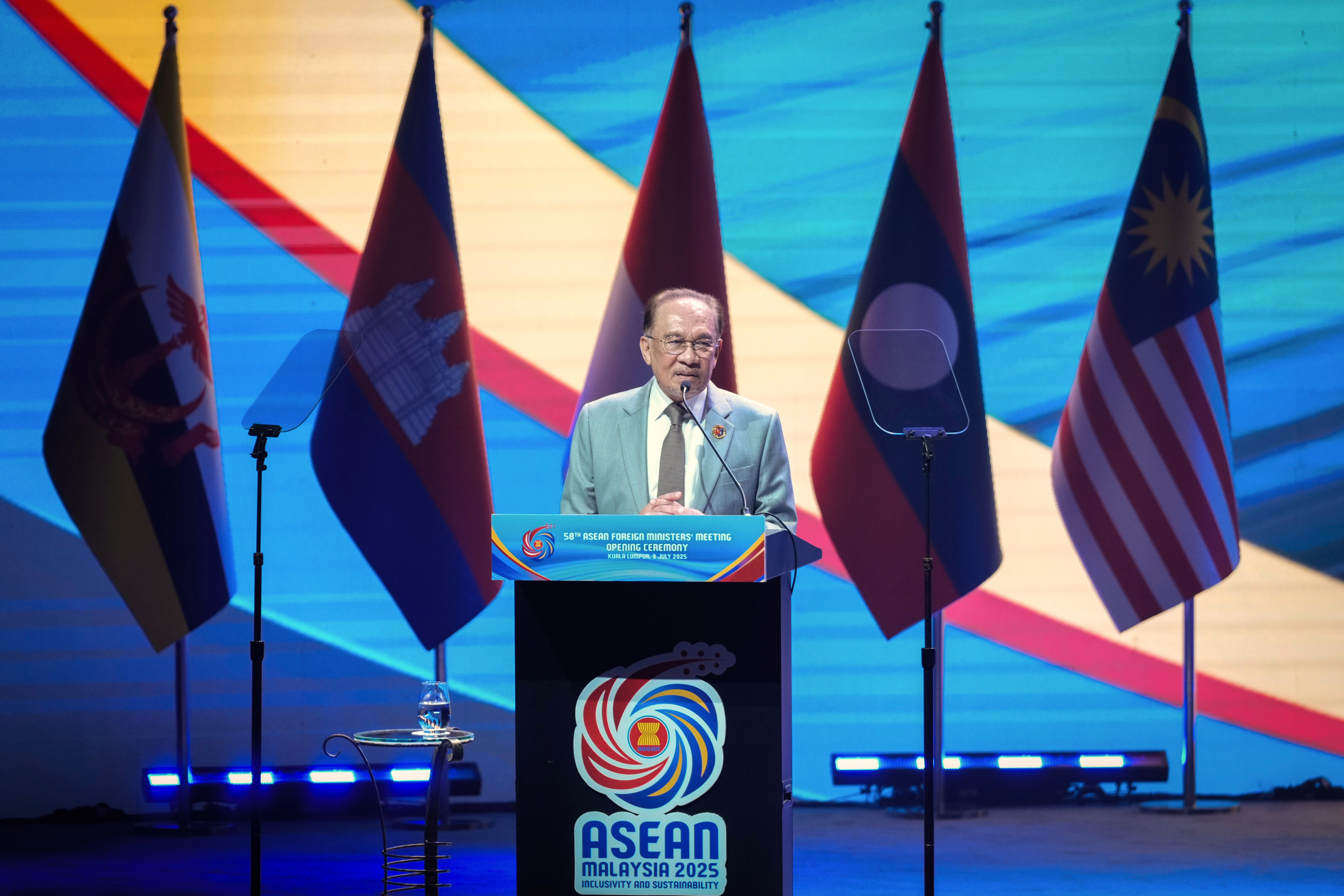
KUALA LUMPUR - Weaponization of international trade must be met with unity among the Association of Southeast Asian Nations (ASEAN) grouping in order to weather disruptions and maintain a principled stand on free and open trade, Malaysian Prime Minister Anwar Ibrahim said here on Wednesday.
In his opening address at the 58th ASEAN Foreign Ministers' Meeting, Anwar also urged greater intra-regional trade and cooperation as a long-term strategy to counter the disruptive impact of tariffs imposed by the US administration.
"Across the world, tools once used to generate growth are now wielded to pressure, isolate and contain. Tariffs, export restrictions, and investment barriers have now become the sharpened instruments of geopolitical rivalry. This is no passing storm. It is the new weather of our time," he said.
ALSO READ: ASEAN reaffirms commitment to keep SE Asia nuclear-weapon-free
"As we navigate external pressures, we need to fortify our internal foundations. Trade more among ourselves, invest more in one another, and advance integration across sectors with resolve. To build a stronger, more connected ASEAN economy is a strategic imperative that will anchor our relevance and resilience for decades to come," he added.
Anwar stressed that the grouping must not lose sight of implementing policies that will benefit the citizens of the grouping, particularly in connectivity, food security, digital transformation, education, public health, and climate resilience, all of which will strengthen the bloc while improving lives.
Malaysian Foreign Minister Mohamad Hasan said in his opening remarks at the plenary session that ASEAN must work toward greater integration and coordination to combat challenges posed by climate change and other disruptive developments.
"A most urgent imperative is the need for us to address the existential hazards of climate change. We have witnessed, first-hand, the effects of rising temperatures, natural disasters, and extreme weather events in our region and its peoples," he said.
"Geopolitical fault lines have continued to fissure, strategic trust has thinned, and flashpoints have sharpened ... we must continue to invest and place our faith in regionalism and multilateralism. We must continue to champion the principles of justice, fairness, equality, and humanity," he added.
READ MORE: Malaysian PM: BRICS grouping opportunity to create fairer world order
Malaysia was hosting the 58th ASEAN Foreign Ministers' Meeting and related meetings from July 8 to July 11, under its 2025 ASEAN chairmanship theme "Inclusivity and Sustainability."
A total of 24 foreign minister-level meetings will be held, including bilateral discussions with ASEAN's external dialogue partners, namely Australia, Canada, China, the European Union (EU), India, Japan, New Zealand, Russia, South Korea, Britain, and the United States.
In addition, four trilateral meetings will be scheduled, involving Malaysia, the ASEAN Secretariat, and sectoral dialogue partners including Brazil, Norway, Switzerland and Türkiye.


